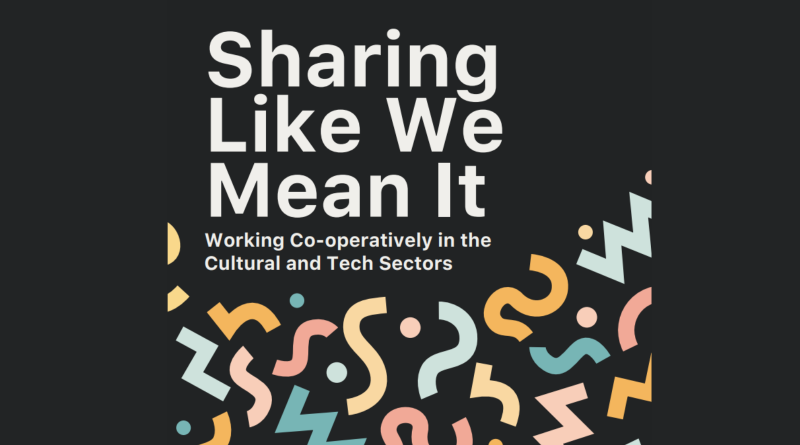Sharing Like We Mean It – new research project sheds light on cooperativism in the cultural and technology sectors
20 April 2021
The research collective “Cultural Workers Organize” published a report, showcasing cooperative models in the cultural and technology sectors in Canada, the UK and the US. The report “Sharing Like We Mean It” provides an extensive overview to cooperative solutions to today’s challenges in the world of work.
Workers in the creative industry are facing a multitude of challenges. Intense competition, precarious employment, isolation, and extractive practices are all too common for creative workers. These problems are increasing tremendously, with new technologies, new business models, and most recently, the Covid-19 pandemic reinforcing these problems.
How can cultural workers overcome these challenges and improve their working conditions, form new alliances, build strong networks, and improve the organizational structure of the creative industry? With their new report ‘Sharing Like We Mean It’, the ‘Cultural Workers Organize’ research collective presents cooperative models in the creative industries as a way forward.
At the beginning, ‘Sharing like we mean it’ delves extensively into the benefits of working cooperatively and sets up the scene by explaining the cooperative principles, the reasons for cooperation, and the downsides of working individually.
Moreover, the report highlights cooperatives as a suitable alternative to the competitive and individualized work patterns all too common in the cultural sector. As democratic organizations owned by their members, cooperatives provide diverse answers to the different needs identified.
The study identifies five different cooperative models: worker cooperatives, multi-stakeholder cooperatives, producer cooperatives, consumer cooperatives and other models, such as cooperatives of independent workers. Active in arts and culture, technology, media and communication and other fields, the study shows the diverse models and fields of activities of cooperatives.
The results presented are based on a survey taken by more than 100 cooperatives in Canada, the UK, and the US.
Consequentially, the report features examples of CICOPA members, United States Federation of Worker Cooperatives (USFWC), Canadian Worker Co-operative Federation (CWCF), and Co-operatives UK.
Among the good practices, several cooperatives of CICOPA members are investigated closer:
Valu Co-op: a fully unionized organization, and worker cooperative, based in Canada.
Arise Architects: successful worker buyout, turned into worker cooperative, based in Canada.
Outlandish: tech digital agency worker cooperative, based in the UK.
Story 2 Designs: digital and print worker cooperative and led by persons of colour, based in the US.
Furthermore, CICOPA board member Siôn Whellens, contributed to the report with his expertise.
To conclude, the report offers some useful recommendations for existing cooperatives, or organizations wishing to delve into the cooperative world. Helpful advice like advertising the cooperative status of an organization, creating cooperative networks, and applying the cooperative principles to promote the advantages of working cooperatively, just to mention a few.
The report also contains handy resources, and insightful statistics of cooperatives in the creative industries.
The “Cultural Workers Organize” research collective is a cooperation of academics from different universities in Canada and the United Kingdom, investigating collective responses to precarity.
Read the full report here.

